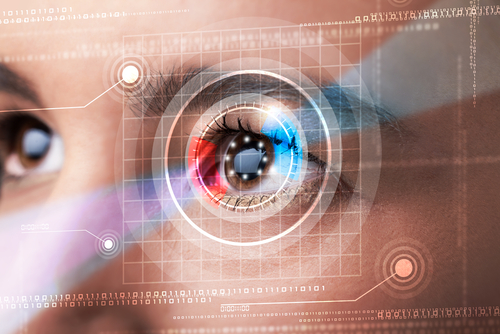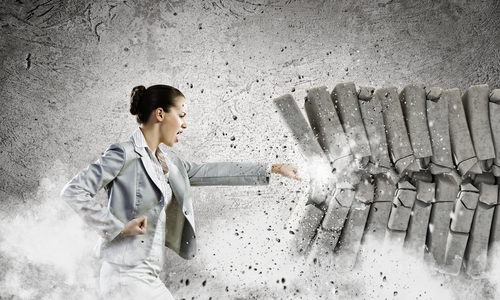One of the main causes of nerves and anxiety ahead of interviews is simply that we don’t get to do them very often. By definition, we are out of our comfort zone, and therefore feel uncomfortable. It is often unpleasant and, judging by how some people react, can be very stressful.
Of course we try to compensate for this by doing mock interviews, researching the interviewer, in short anything that we can do to eliminate surprises or shocks during the actual interview. But often this is not enough.
A highly effective method to expand our “interview comfort zone” is by using visualisation techniques.
To get a sense of the importance and potency of visualisation, look at how elite sportspeople prepare for those high pressure situations.
Track and field sprinters spend the last minutes ahead of a race visualising their start out of the blocks, the middle phase, the lean for the line, and “see” themselves winning Olympic Gold.
Professional golfers visualise the shot they want to hit in the moments before they step up to the ball, they visualise the putt rolling in to win the Masters.
Footballers visualise the twenty-five yard free kick curling over the wall and past the goalkeeper’s outstretched hand into the top right corner to win the cup.
This is not random behaviour, or coincidence. Sports science recognises the cognitive processes triggered during visualisation, and how this technique improves actual performance.

Neuroscience shows us that “neural pathways” are created by thoughts and are strengthened by repetitive thoughts. Our memories are nothing more than neural pathways which grow strong by recollecting in vivid detail the sights, sounds, smells and sensations of a given experience. The richer and more impactful the experience, the stronger the memory.
Stephen Covey, in his seminal “The 7 Habits of Highly Effective People“, talks about all things being created twice, once mentally and then second physically. The better you prepare mentally, the better you will execute physically.
So how does this help in the preparation for interviews?
Well the really interesting part about visualisation is that if you do it effectively enough with enough richness of detail, you can actually ‘trick’ the brain into creating a memory as if you had really experienced something you have only visualised.
So if you have almost zero interview experience, or have struggled at interview, the remedy is to start to regularly visualise yourself having a fantastic interview.
Imagine preparing for an upcoming interview by performing the following visualisation:
You stride confidently into the room and greet the interviewer warmly, he smiles back. You note the clothes your interviewer is wearing, the colour of his eyes. You memorise his name. You absorb the layout of the room, the background noises, the temperature, the smell.
You sit down across the desk from your interviewer and adopt that confident position that you know gives off very good signals. You are relaxed and “in the zone”.
You describe yourself, confidently laying out your virtues and principles which will ensure you would do a great job, supported by examples from your recent past where you have successfully overcome great challenges.
You handle each competency based question with ease, relaying how your skills and experience were deployed to good effect in the past to beat deadlines and outperform expectations.
You handle each behavioural question with aplomb, describing in rich detail the qualities and principles that you have which will serve you well at this organisation.
You ask three penetrating questions of the interviewer, listening intently to his answers and having an intelligent two-way conversation around the career opportunity ahead of you.
You wrap up the interview with a friendly discussion around your shared passion for sport, and make the interviewer chuckle at a recent funny experience that you had on the golf course.
The interviewer shakes your hand warmly and wishes you the best of luck – with a smile and a wink – as you leave the room.
You get a call the following week to tell you that you were the perfect candidate and you have been offered the job.
How does that sound? The blueprint for a perfect interview? Now, imagine performing this visualisation every night for a month as you go to sleep. Do it for three months. And do it in the richest possible detail. Say to yourself the exact answers that you would give, rehearse the minutest possible nuances.
Sure enough, if you do this effectively, and habitually, you will take on the aura of someone who is great at interviewing. Your brain will develop these strong neural channels which will imbue you with confidence at the prospect of your next interview.
You will actually look forward to the interview, because you believe you are now operating within your comfort zone. In fact you have enlarged your comfort zone, which is fantastic as this is the key metric for personal development and success.
If you don’t believe me, please try visualisation on anything that is important to you. I use the technique all the time to rehearse for big events or meetings where I want to perform at my best, and it works. It calms the nerves and gives me a strong foundation from which to deliver my very best.
I can assure you, if done effectively, it will do the same for you.
Need help with your interview preparation? Download my FREE guide “101 Top Tips for Interview Success“
For the ultimate in interview preparation, contact me to discuss the option of Private Coaching
Image credits: Shutterstock







